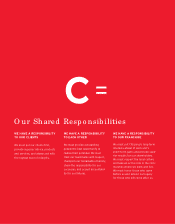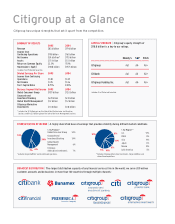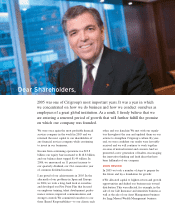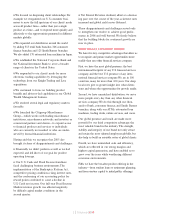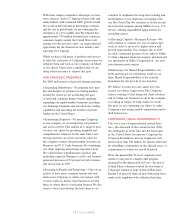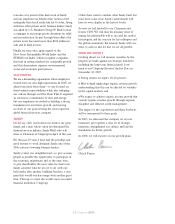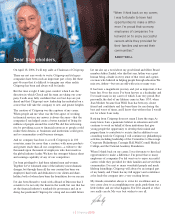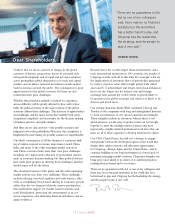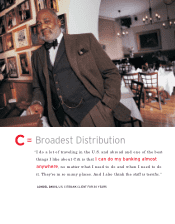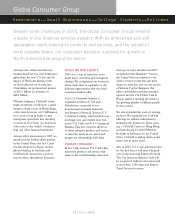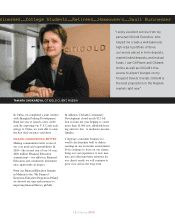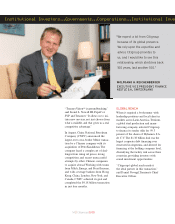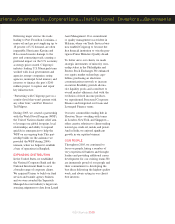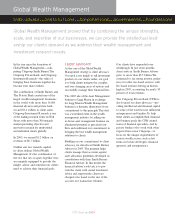Citibank 2005 Annual Report Download - page 9
Download and view the complete annual report
Please find page 9 of the 2005 Citibank annual report below. You can navigate through the pages in the report by either clicking on the pages listed below, or by using the keyword search tool below to find specific information within the annual report.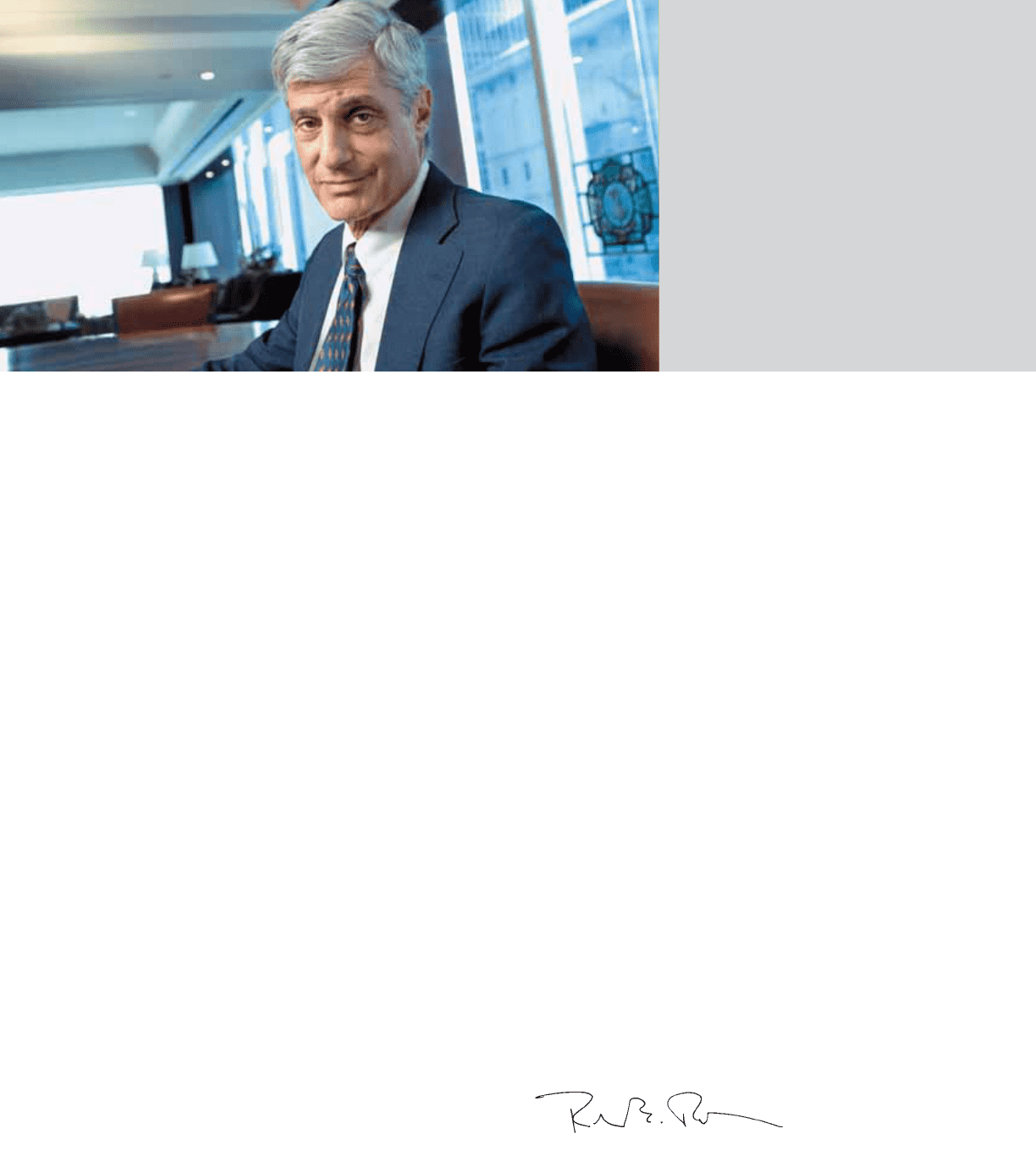
7 | Citigroup 2005
I believe that we are in a period of change in the global
economy of historic proportions, driven by powerful tech-
nological development and its rapid and pervasive adoption
across geographies, global integration as to trade and capital
markets, and an almost universal movement towards market-
based economics around the globe. The consequence is great
opportunities for the global economy, but there are also
commensurately great challenges.
Whether this potential is realized, or instead we experience
serious diffi culty, will be greatly affected by how well or how
badly the political systems of the major regions of the global
economy address these challenges. This juncture of opportunities
and challenges, and the many factors that underlie both, poses
exceptional complexity and uncertainty for the decision-making
of business, investors, and policymakers.
And there are no clear answers—only possible scenarios and
judgments about the probabilities. Moreover, this complexity is
heightened because timing on possible scenarios is unpredictable.
One likely consequence of all this change is a continued shift-
ing of relative regional economic importance toward China,
India, and many of the other emerging-market nations of
Asia. These countries clearly have their own great challenges,
including, very importantly, reduction of government involve-
ment in economic decision-making, but their political systems
have made great progress in meeting those challenges, and that
should augur well for the future.
The developed nations of the globe, and the other emerging-
market nations, face their own challenges. These challenges
include reducing structural rigidities and trade barriers, effec-
tively accomplishing broad-based sharing in economic growth
rather than the too-frequent relatively narrow participation
that undermines support for market-based economics and
trade liberalization, protecting the environment as an eco-
nomic imperative, and addressing fi nancial imbalances and an
aging workforce.
Because this is the world’s largest fi nancial institution, and a
truly international institution in 100 countries, the people of
Citigroup wrestle with all of this daily. For example: what are
the implications of enormous fl ows of petrodollars generated
by today’s oil prices; what effects might global trade imbal-
ances and U.S. intermediate and longer-term fi scal imbalances
have over the longer run for interest rates and foreign
exchange rates around the world; where is growth likely to
be greatest in the global economy and where is it likely to be
slowest; and much more.
Our retiring chairman, Sandy Weill, combined Citicorp and
Travelers, both companies with long and distinguished histories,
to form an institution of very special capacities and strengths.
These strengths include an enormous balance sheet, a vast
global presence, a wide array of products that can be brought
together to meet the multiple needs of clients, and, most
importantly, a highly talented professional work force that can
draw on all of these capacities to develop solutions for clients.
Our CEO, Chuck Prince, has laid out a strategy to engage
energetically both in the developed regions of the world that
despite their relative maturity still offer great opportunities
for Citigroup—Europe, Japan, and the United States—and to
continue building on our long involvement in a broad array of
promising emerging-market countries. Citigroup’s strengths can
bring great value added to its clients, to its talented people in
realizing their potential, and to its owners.
There are no guarantees in life, but as one of my colleagues said,
there may be no fi nancial institution in the world that has a
better hand to play, and Citigroup has the leadership, the strategy,
and the people to play it very well.
Dear Shareholders,
“ There are no guarantees in life,
but as one of my colleagues
said, there may be no financial
institution in the world that
has a better hand to play, and
Citigroup has the leadership,
the strategy, and the people to
play it very well.”
ROBERT RUBIN


